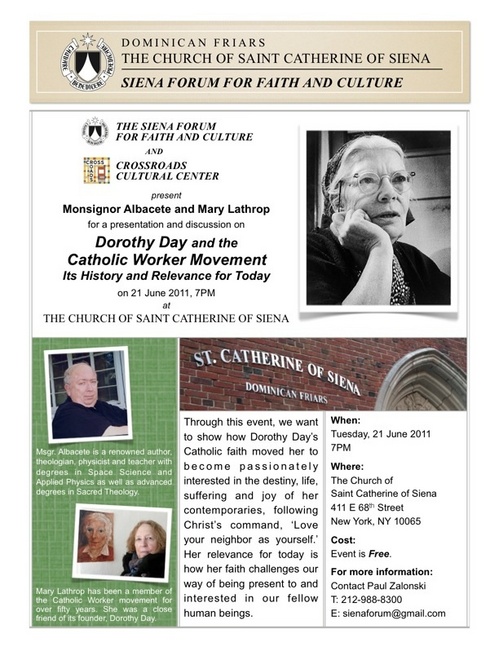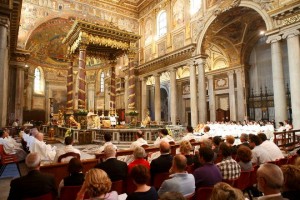 Tremendous joy exists when a man is ordained for the service of Christ and the Church.
Tremendous joy exists when a man is ordained for the service of Christ and the Church.
Tag: Communion and Liberation
Dorothy Day and the Catholic Worker Movement: an American witness to the Culture of Life
Last night at the Church of Saint Catherine of Siena (NYC) a remarkable event took place. About 120 people from all over the Metropolitan New York area attended an event co-sponsored by the Siena Forum for Faith and Culture and Crossroads Cultural Center whereby we wanted to know more about a pivotal figure of the 20th century who was truly human and in love with Christ through the poor, the Servant of God Dorothy Day. Ms. Mary Lathrop, a longtime friend and spiritual daughter of Day’s, with Monsignor Lorenzo Albacete, spoke about the person of Dorothy Day, the Catholic Worker Movement and Catholic Social teaching. Albacete as you know is the well known priest, physicist and theologian who works with the lay movement Communion and Liberation in the USA. Lathrop is a remarkable woman of faith and conviction who gave us a deeper appreciation for the real person that Day was and not the ideaology that is often passed off for the same.
A video of the event is located here.
The following article by Monsignor Lorenzo Albacete was published today on Il Sussidiario (English edition):
This week I was asked to participate in a discussion about Dorothy Day, founder of the “Catholic Worker Movement.” The story of her life captures like none other the history of the Catholic Church in the United States during the last century, and a judgment on her life pretty much indicates how American Catholics look at the challenges and opportunities of the 21st century.
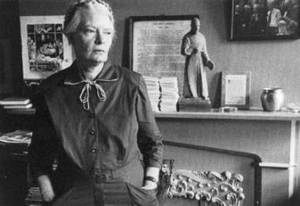 Dorothy Day was born in Brooklyn, NY, on November 8, 1897 and died on November 29, 1980. I must confess that I knew very little about her during the 60’s and 70’s, except that she was a very controversial Catholic pacifist, feminist, and maybe socialist who made many Church authorities very nervous (and still does here and there). I knew about her opposition to the atomic bombing of Hiroshima, but it was not until recently that I read her stunning editorial excerpted below so you can get a feel for her soul’s style:
Dorothy Day was born in Brooklyn, NY, on November 8, 1897 and died on November 29, 1980. I must confess that I knew very little about her during the 60’s and 70’s, except that she was a very controversial Catholic pacifist, feminist, and maybe socialist who made many Church authorities very nervous (and still does here and there). I knew about her opposition to the atomic bombing of Hiroshima, but it was not until recently that I read her stunning editorial excerpted below so you can get a feel for her soul’s style:
Mr. Truman was jubilant. President Truman. True man; what a strange name, come to think of it. We refer to Jesus Christ as true God and true Man. Truman is a true man of his time in that he was jubilant…the newspapers said. Jubilate Deo. We have killed 318,000 Japanese…
Christ is a new creation: Communion & Liberation Spiritual Exercises 2011
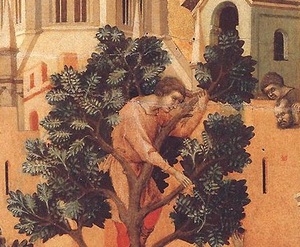 The 2011 Spiritual Exercises of the Fraternity of Communion and Liberation were given in various parts of the world under the theme of Christ being a new creation. Father Julián Carrón, the President of Communion and Liberation gave the retreat using Saint Paul’s teaching: “So whoever is in Christ is a new creation: the old things have passed away; behold, new things have come.”
The 2011 Spiritual Exercises of the Fraternity of Communion and Liberation were given in various parts of the world under the theme of Christ being a new creation. Father Julián Carrón, the President of Communion and Liberation gave the retreat using Saint Paul’s teaching: “So whoever is in Christ is a new creation: the old things have passed away; behold, new things have come.”
Confronting bourgeois religiosity
Several things have surfaced for me recently that has me wondering about what we are doing as a Christian people living our faith in a parochial setting today. Two things to read are the notes from a recent Communion and Liberation retreat and the Pope’s recent remarks in Croatia. Both go hand-in-hand: God is not a sentimental object and He remains an authority. But in order for me to say this with conviction I’ve got to accept that if I am in Christ I am a new creation (really!) and therefore a living presence. How many times during the Easter season did I understand that Christ was (is) the newness of life? The honest answer is: it is hard to tell.
Father Julián Carrón had the following to say in his introductory remarks for Communion & Liberation’s Fraternity Spiritual Exercises given this spring that bear significant attention for whatever ministry we find ourselves in (or not):
“It seems I am hearing today the same identical question Fr. Giussani was asked by a student. He himself recounts it: “Now people no longer perceive the correspondence between the Christian proposal in its originality, the Christian event, and everyday life. When you try hard to make it understood, they say, ‘But you’re so complicated, you’re so complicated!’ In high school, when I dictated what you study in School of Community, I had in class the son of Manzù, who had a priest he always went to. This priest stirred him up against what he read in the notes from my lessons, and told him, ‘See, this complicates, while, instead, religion is simple.’ In other words, ‘the reasons complicate’-and how many would say the same!–‘the search for the reasons complicates.’ Instead, it illuminates! This mindset is the reason Christ is no longer an authority, but a sentimental object, and God is a boogeyman and not a friend.”
Siena Forum to host conversation on Dorothy Day with Lorenzo Albacete and Mary Lathrop on June 21
Father Carrón tells us that John Paul was a pope seized by Christ
Father Julián Carrón, president of the Fraternity of Communion and Liberation was interviewed by the Vatican newspaper L’Osservatore Romano on the beatification of Pope John Paul II. Father Carrón said that “beatification of John Paul II … is a ‘strong invitation’ to conversion.”
Mauro Lepori: “…Only by re-proposing the fascination of the Mystery of Christ” does one overcome difficulties
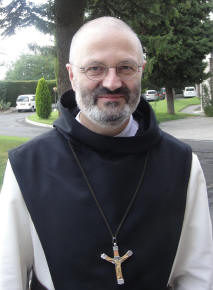 The newly elected Abbot General of the Order of Cistercians, Abbot Mauro-Giuseppi Lepori, OCist, has been a part of the lay ecclesial Movement, Communion and Liberation for many years.
The newly elected Abbot General of the Order of Cistercians, Abbot Mauro-Giuseppi Lepori, OCist, has been a part of the lay ecclesial Movement, Communion and Liberation for many years.
Rossella Teregnoli: the new woman in the papal household
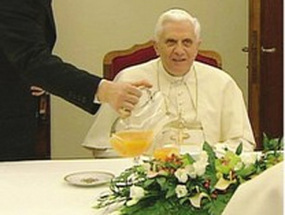 The pope’s household –the Pope’s family– gets a fourth assistant with Rossella Teragnoli. She joins three other Memores Domini women, Loredana, Carmela and Cristina.
The pope’s household –the Pope’s family– gets a fourth assistant with Rossella Teragnoli. She joins three other Memores Domini women, Loredana, Carmela and Cristina.
“Reality holds a signature from God … we must seek to decipher”
In such a case, is awe, wonder, and joy at scientific
discoveries possible? When I was thinking about this, a friend sent me the text
of a speech given by Msgr. Luigi Giussani about the “love of being” that is
remarkably appropriate to this reflection. Giussani’s argument is that the truth of Christianity can be
verified by a proper consideration of the evidence for it. Evidence, he says,
is the correct word, even if the evidence for the Christian claim is given to
us through signs. Signs are things that can be touched, seen, and experienced. The Apostles had Jesus in front of them and this presence was a sign of His
victory over death, and therefore of His mysterious identity. But what about
us? What happens with the passage of time? What signs are there for us as
evidence of the truth of the Christian claim, of the reasonableness of the
Christian claim?
liberty, he says. In this drama, our liberty is a manifestation of our love for
being. Without this love for being we are not truly free and we will never
grasp the evidence of the signs given to us. At this point, as an example of
this love for being, Giussani invokes the Magi.
Continue reading “Reality holds a signature from God … we must seek to decipher”
Charitable work and the common fund: 2 wings of the Christian witness
 I always look for evidence –that is, I am looking for light on a situation that may not be very clear for me– i.e., for the reality, the truth and beauty of a vigorous Catholic life by seeing if people are willing to live the Gospel. We do our best given the graces we’ve received and our own open hearts. I find myself in need to know that others belief that that the promises (and extraordinary claims) of Christ are true and are lived. Novel, right? Not really. We Catholics have been concerned for the welfare of others since the time Jesus and because our Christianity has its roots in Judaism, even before Jesus. Just read the Old Testament and dig into the narrative there. But it is Jesus gives a new lens by which to see life and to live differently today by the fact of the Paschal Mystery (His life, death, resurrection and ascension).
I always look for evidence –that is, I am looking for light on a situation that may not be very clear for me– i.e., for the reality, the truth and beauty of a vigorous Catholic life by seeing if people are willing to live the Gospel. We do our best given the graces we’ve received and our own open hearts. I find myself in need to know that others belief that that the promises (and extraordinary claims) of Christ are true and are lived. Novel, right? Not really. We Catholics have been concerned for the welfare of others since the time Jesus and because our Christianity has its roots in Judaism, even before Jesus. Just read the Old Testament and dig into the narrative there. But it is Jesus gives a new lens by which to see life and to live differently today by the fact of the Paschal Mystery (His life, death, resurrection and ascension).
Continue reading Charitable work and the common fund: 2 wings of the Christian witness
